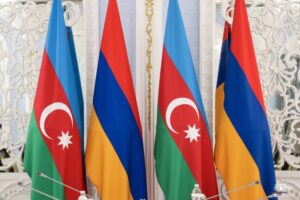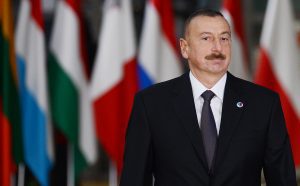
Armenia has accepted Azerbaijan’s proposals on two unresolved articles of the draft peace agreement, which means the end of the negotiation process.
“Thus, the peace agreement is ready for signing. The Republic of Armenia is ready to begin consultations with the Republic of Azerbaijan on the time and place of signing the Agreement,” reads the statement published on the official website of the Armenian Ministry of Foreign Affairs on Thursday.
Yerevan also noted that it had offered to make a joint statement on the agreement, but Baku “preferred a unilateral statement.”
Earlier, Azerbaijani Foreign Minister Jeyhun Bayramov said that Armenia had agreed to the latest amendments. According to him, the next step should be the removal of clauses from the Constitution of Armenia that Azerbaijan regards as territorial claims, as well as the dissolution of the OSCE Minsk Group.

The Ministries of Foreign Affairs of Ukraine and Azerbaijan have agreed to prepare for the official visit of President of Azerbaijan Ilham Aliyev to Ukraine before the end of 2020, the press service of the Ministry of Foreign Affairs of Ukraine said.
“On June 17, another round of political consultations took place at the level of Deputy Foreign Ministers of Ukraine Vasyl Bodnar and the Republic of Azerbaijan Khalaf Khalafov in the form of a videoconference, during which further cooperation was comprehensively discussed, including on supporting the territorial integrity of both states and certain aspects of the policy regarding the occupied territories,” the ministry said in a statement.
Thus, the diplomats emphasized the importance of maintaining the existing dynamics of political dialogue and agreed to concentrate efforts on preparing the official visit of Azerbaijani President Aliyev to Ukraine before the end of 2020.
“I’m sure that the official visit of the Azerbaijani leader to Ukraine will be a significant impetus for strengthening strategic partnerships and will allow serious advancing implementation of joint projects,” Bodnar said.
The parties agreed to intensify the work of ministries and departments to prepare joint initiatives, programs and documents, as well as hold meetings of bilateral working bodies.
Among other things, the parties discussed practical steps to implement projects in the political, trade, economic, energy, transport, cultural, humanitarian and military-technical fields.